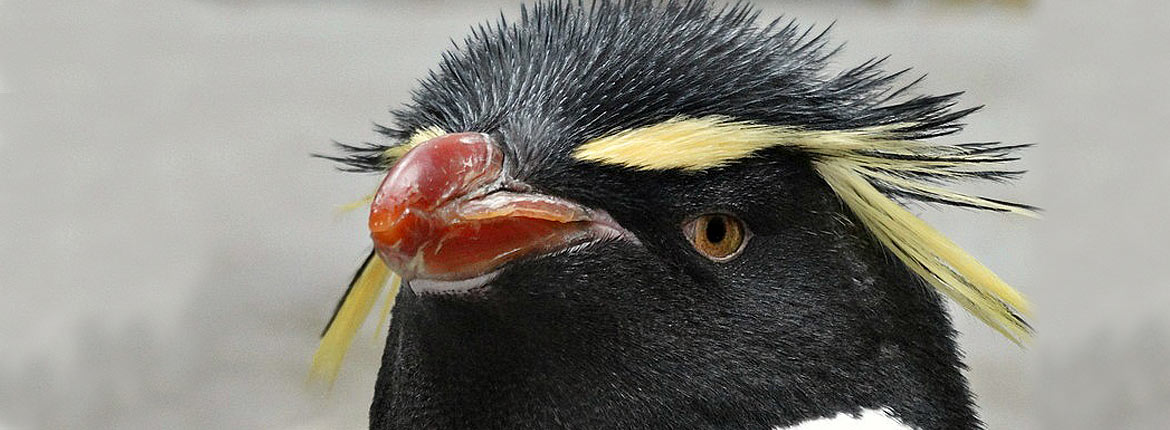Effects of Cataract Surgery on Crested Penguins
Penguins are long-lived in zoo settings, and elderly individuals are prone to diseases of aging such as cataracts. Loss of sight is of particular concern for the welfare of the zoo’s penguins, as it could compromise their ability to navigate their new habitat – the Polk Penguin Conservation Center, where they will move in early 2016.
To address this concern, four crested penguins (three macaroni penguins and one rockhopper penguin) received cataract surgery from a veterinary ophthalmologist in late 2014. We collected observational data on these penguins before their surgery and after their recovery to evaluate the effects of restored sight on their behavior. We monitored each penguin’s activity budget, use of space within the current habitat, and social behavior.
Our results showed that each of the penguins used significantly more of their habitat following the surgery. The Penguinarium at the Detroit Zoo has three sides. Prior to surgery, each of the penguins spent their time almost exclusively on a single side, often by a nest. After surgery, all of the penguins diversified their use of space and were observed using all three sides of the habitat. The effects of the surgery on the penguins’ activity budgets and social interactions were minimal. However, two birds spent significantly more time feeding after their surgery, and we suspect that their improved vision enabled them to compete more effectively for food.
We are continuing to monitor these individuals as part of the habitat study described above, and we will assess the long-term impacts of the surgery as well as how these individuals adapt to moving to the Polk Penguin Conservation Center.



